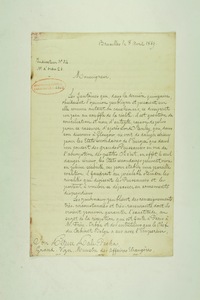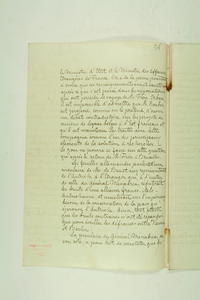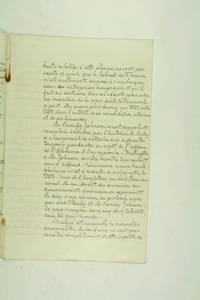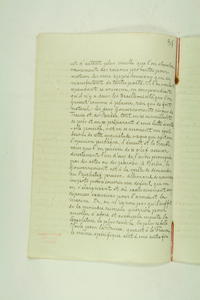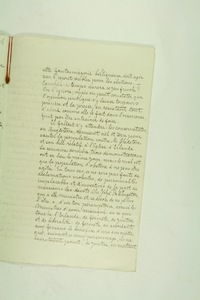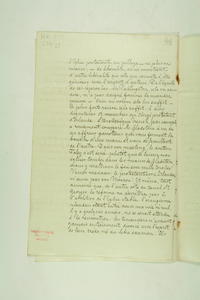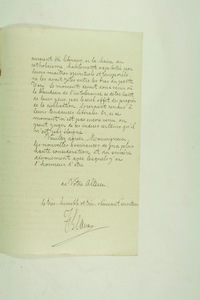Ottoman Diplomats
Letters from the Imperial Legation in Brussels (1849–1914)
Synopsis
According to Lord Stanley’s speech in Glasgow, the only danger for the smaller European states would be the Great Powers absorbing them. Glavany criticizes this point of view, remarking that rivalries keep dividing the Great Powers. He then reports about several European conflicts and issues. He notes that the Belgian newspapers were reassuring about the French-Belgian railroad conflict. They referred to the conversation between Frère-Orban, Belgian Prime Minister and the French Emperor, the French Prime Minister and the French Minister for Foreign Affairs. Glavany questions the information these sources provided him, and notes that the reality will only become clear after the return of Frère-Orban to Brussels. The contradicting news and rumours - in German periodicals, reporting about the letters of Friedrich Ferdinand von Beust and General Ménabréa - concerning Austria’s ‘alliance’ with Italy and France, strengthened the suspicion and distrust between Prussia and Austria. In London, historian Mottey replaced Beverdy-Johnson, because according to Washington, the latter had been to obliging in the Alabama Affair. This incident, however, had not troubled the relations between Britain and the United States, since real problems were avoided before they could arise. Between France and Prussia, there were still a lot of tensions. Because of the fear for war, the government wanted to ask the Prussian-German Reichstag for new taxes, to solve the economic deficit and sponsor the army. Glavany notes that – as expected – the English conservatives tried to set the people against Gladstone and his bill concerning the abolishment of state religion in Ireland, which resulted in demonstrations. Ex-minister John Pakingston accused the government of a lack of determination, justice and liberality. Glavany, however, criticizes Pakingstons attitude and his words, showing support for the liberal leader, Gladstone. Moreover, Glavany predicts that the Irish reforms would go further than the abolishment of state religion. About the Irish Orangemen, he states that they would have been liberal if it weren’t for their hate of Catholicism, cunningly exploited by their spiritual leaders. This had driven them into the arms of the Tories. If they would let go of their intolerance, their civilization and liberal tendencies would develop. Glavany foresees this for the near future.
Facsimiles
How to cite
If you use this website for your own research, we kindly ask you to mention the following reference in your publications:
Consulted online at Ottoman Diplomats: Letters From the Imperial Legation in Brussels (1849–1914) (2014 Edition), Centre for Political History (PoHis), University of Antwerp, <http://dighum.uantwerpen.be/ottomandiplomats/>.
